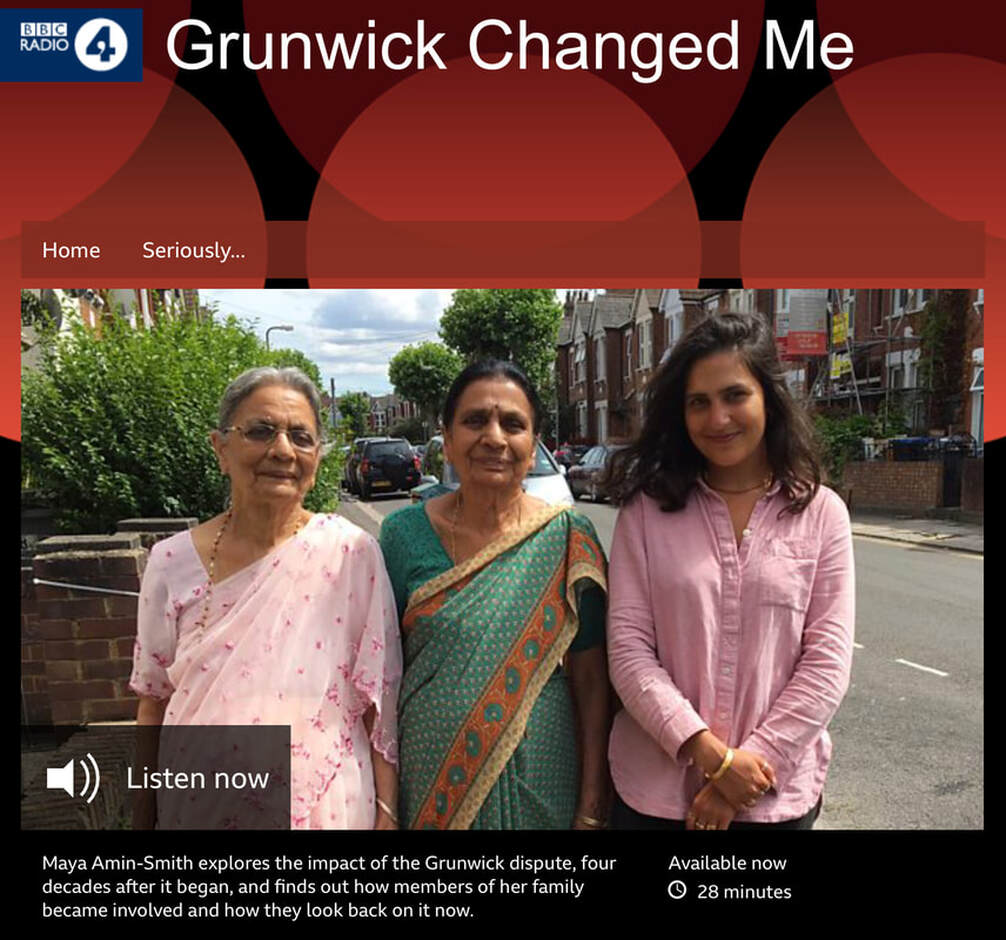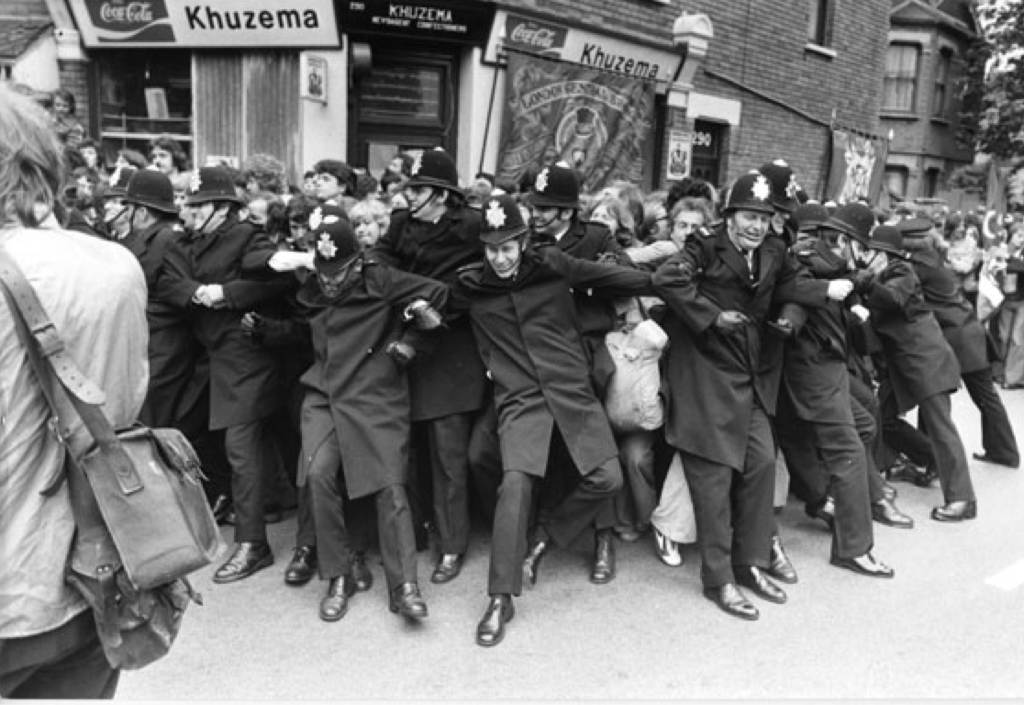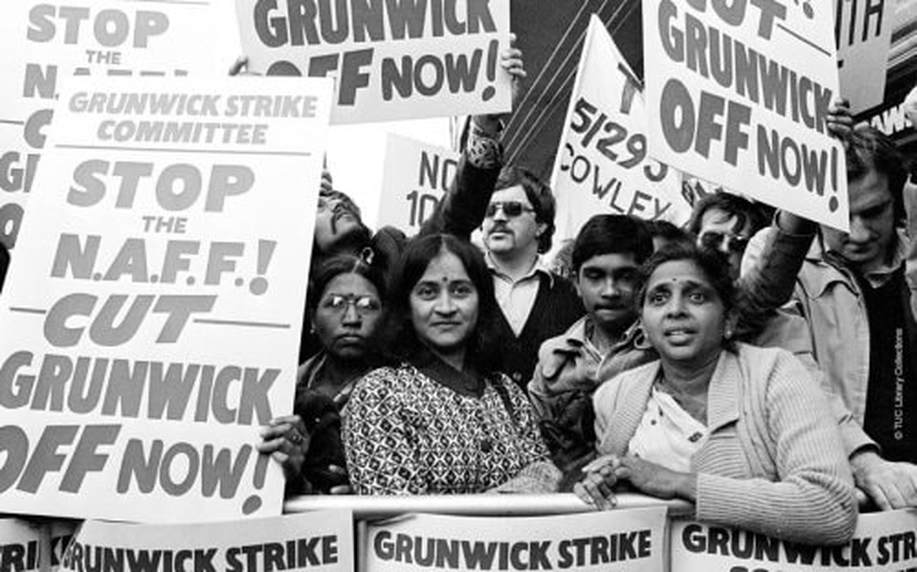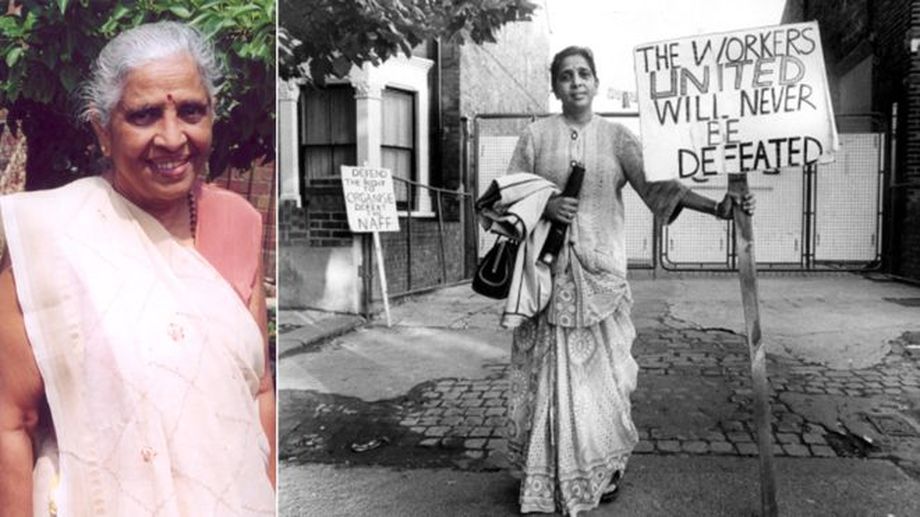The Grunwick Strike
A Time and A Place
between 1976 and 1978.
Chapter Road, Dollis Hill,
Willesden,
London.
Grunwick Film Processing Laboratories in Chapter Road, Dollis Hill, Willesden, London, United Kingdom, that led to a two-year strike between 1976 and 1978!
Photo was in 'public domain' when first published 2016 when I heard this prog on radio 4 it moved me so much! best pp x
Two years it lasted! The strikers being mostly immigrant Asian Females (after Idi Amin had ordered their expulsion from Uganda😪 ) led by the incredibly brave Jayaben Desai (pictured above) They were simply fighting for a liveable wage and better working conditions., It grew into a massive movement. 1000's of arrests and a uniting of unions.
Why don't we hear more about The Grunwick Strike?
It was an incredibly brave thing to do by these Women, one remarked on how big and frightening the police seemed until a bus of giant Welsh miners arrived to protest in solidarity.... The film was moving for me, in fact I still cry.
The strike did a lot to improve racism and immigrant working conditions but why has it been forgotten? Has it been forgotten?
Maybe now we choose to remember giant sporting victories, or gigantic financial success stories. Well I for one think this is worth remembering.
One remarked on how big and frightening the police seemed, until a bus of giant Welsh miners arrived to protest in solidarity.... The film was moving for me. 😅 best pp x
The Grunwick dispute was an industrial dispute involving trade union recognition at the Grunwick Film Processing Laboratories in Chapter Road, Dollis Hill, Willesden, London, United Kingdom, that led to a two-year strike between 1976 and 1978.
Source of quotes ....http://www.striking-women.org/module/striking-out/grunwick-dispute
In those days, trade unions were all led by white men, and women workers as well as non-white workers often found it very hard to win support from their unions. Many migrant workers felt that the unions were racist and supported the management in keeping the wages of women and non-white workers down. But something special happened at Grunwick.
After Jayaben and her co-workers spent a few months picketing outside the Grunwick factory, the cause of the Grunwick strikers was taken up by the wider trade union movement of the day. By June 1977 there were marches in support of the Grunwick strikers, and on some days more than 20,000 people packed themselves into the narrow lanes near Dollis Hill tube station.
pauliepaul x
After two long years of struggle, the Grunwick dispute ended in defeat for the strikers. But according to jayaben Desai, not everything was lost:
…because of us, the people who stayed in Grunwick got a much better deal. When the factory moved, the van used to come to their home and pick them up because it was difficult for them to get to the new place. Can you imagine that? And they get a pension today! And we get nothing. That was because of us, because of our struggle.
share
|
|
|



